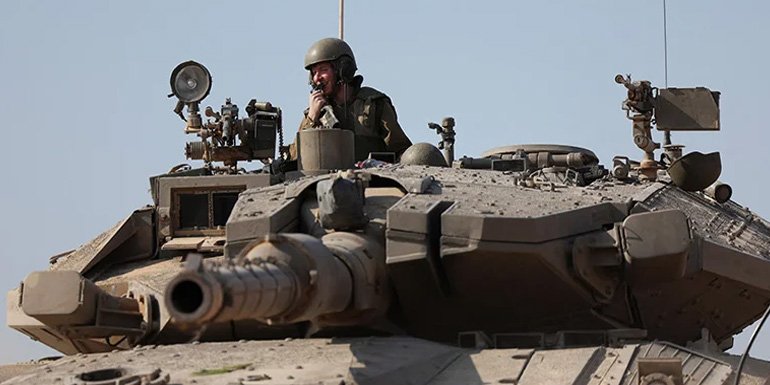The War Between Israel and Hezbollah: A Biblical Prophecy Perspective

In recent years, escalating tensions between Israel and Hezbollah have drawn global attention. The frequent skirmishes and threats between these two parties have left many wondering if these events tie into biblical prophecy. Understanding the modern conflict within a prophetic context offers a unique lens through which to analyze current events, especially for those who study the Bible’s teachings about the future of Israel and the Middle East.
Hezbollah: A Contemporary Enemy of Israel
Hezbollah, a Lebanese-based Shia militant group supported by Iran, has been a long-standing adversary of Israel. Since its inception in the 1980s, Hezbollah has repeatedly engaged in conflict with Israel, with major confrontations such as the 2006 Lebanon War. Hezbollah views itself as a resistance movement against Israel and continues to build up its military capacity, often threatening to launch rockets and invade northern Israel. The current tension points to a larger regional struggle involving Israel, Iran, and Hezbollah, with global powers like the U.S. and Russia playing influential roles.
The Bible’s Perspective on Israel’s Enemies
To understand the significance of the Israel-Hezbollah conflict from a prophetic angle, we must first look at what the Bible says about Israel’s future in the last days. The Bible consistently portrays Israel as a central player in end-times events, facing many surrounding enemies. Several passages provide insights into the wars and conflicts that Israel would face in the latter days, with a particular focus on Israel’s northern border.
In Psalm 83, we find a prophetic psalm that lists a coalition of nations conspiring against Israel. While many scholars debate whether this is a past or future event, the names mentioned correspond to modern-day nations around Israel, including Lebanon (where Hezbollah is based). The psalm speaks of nations seeking to “cut off [Israel] from being a nation,” which mirrors Hezbollah’s expressed goals of eliminating the Jewish state. This could imply that conflicts such as those with Hezbollah are part of a broader prophetic picture.
Gog and Magog: The Broader Context
One of the most significant prophecies concerning Israel’s future wars is found in Ezekiel 38-39, where the prophet Ezekiel foretells a massive invasion against Israel by a coalition led by “Gog of Magog.” This invading force, which many biblical scholars associate with a coalition involving Russia, Iran, and other nations, will come from the north. Hezbollah, being positioned in Lebanon, is geographically part of Israel’s northern threat. Given Iran’s backing of Hezbollah and its involvement in end-times prophecies, some speculate that Hezbollah could be one of the players in this broader conflict.
However, the prophecy of Gog and Magog speaks of a much larger war involving multiple nations rather than just Hezbollah. That said, Hezbollah’s skirmishes and increasing hostilities could be seen as precursors or smaller sparks in a conflict that will eventually draw in larger regional powers.
Isaiah’s Prophecies of a Northern Invasion
Isaiah 17 also speaks of the destruction of Damascus, the capital of Syria, which is another major player in the region and a close ally of Hezbollah. The chapter describes a time when Damascus will become a “ruinous heap,” which many see as a future event yet to be fulfilled. Some have theorized that an Israel-Hezbollah conflict could escalate into a larger war that involves Syria and fulfills this prophecy.
The connection between Syria, Hezbollah, and Iran points to a potentially devastating regional war. Hezbollah’s role in this could be as a proxy for Iran in its greater ambition to oppose Israel, fulfilling the ancient prophecies that predict Israel’s continuous struggle with its northern enemies.
The Spiritual and Prophetic Significance
The wars involving Israel are not merely political or military conflicts but are deeply rooted in the spiritual and prophetic destiny of the nation. According to the Bible, God has a special plan for Israel, and the conflicts it faces are part of a larger narrative about the culmination of human history. Israel’s enemies, including Hezbollah, are seen as instruments in a broader spiritual battle that will eventually lead to the coming of the Messiah and the establishment of God’s kingdom on Earth.
Prophetic scripture suggests that as we approach the end times, Israel will face increasing hostility from surrounding nations, including those from the north. Hezbollah’s actions and Iran’s influence over the region could be viewed as part of this unfolding plan.
Conclusion: Watching the Times
While the Bible does not specifically mention Hezbollah by name, the group’s role as an adversary of Israel fits into the prophetic themes of conflict between Israel and its neighbors. The current and future skirmishes between Israel and Hezbollah could be seen as part of the larger prophetic picture, where Israel will face hostility until the ultimate divine intervention takes place.
As tensions escalate, many Bible prophecy students watch the Middle East with great anticipation. The war between Israel and Hezbollah may not be the final battle, but it could be a critical chapter in the unfolding narrative of God’s plan for Israel and the world.
Ultimately, these conflicts remind believers of the importance of prayer for peace, while also urging vigilance as the world moves closer to the fulfillment of biblical prophecies concerning Israel and its place in the end times.
